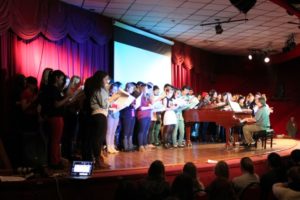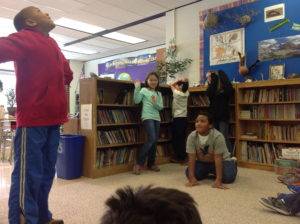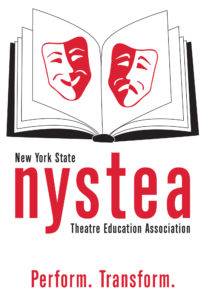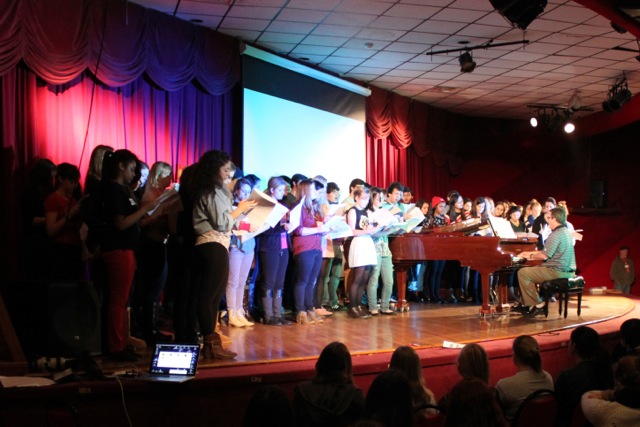“Best times of my high school life.”
I just received this comment on my Facebook page after posting a PSA on how theatre transforms students’ lives. This comment does not represent a desire to goof off and party, nor is it an isolated sentiment. Theatre education programs provide a safe place for students to be themselves, to explore relationships, to develop compassion, collaborative practices, and the idea of delayed gratification. Theatre education programs are about understanding relationships and possible motivations behind the actions that people take.
These are the obvious take-aways.
Here’s some less obvious ones.
* Success in School. By any definition of “youth at risk,” the percentage of those who  graduate from high school is doubled — doubled! — when those students are coming from an arts-rich school environment. Click here to read the research study.
graduate from high school is doubled — doubled! — when those students are coming from an arts-rich school environment. Click here to read the research study.
At-risk students in arts-rich school environments also get better grades, have better attendance, are more likely to take upper-level classes and to succeed in them…. and on, and on, and on (more research here). For another take on how theatre education promotes success in school, watch this short (1.5 minute!) video PSA.
* The business of theater is good preparation for other careers.
Here’s a short video PSA, if you prefer video, and below is an excerpt from Backstage Magazine, an article by Harvey Young (click here for the whole article).
“Rahm Emanuel, the current mayor of Chicago and formerly Chief of Staff to President Obama as well as a Congressman, majored in the Humanities in college with a specialization in dance. ‘Value’ studies would look at Emanuel and identify him as not being successful because he neither works as a professional dancer nor earns income in the field of dance. Instead of adopting this flawed logic, it is important for us to

acknowledge that the skills gained through theater apply to other jobs and careers outside of the performing arts. Theater majors frequently become makers and producers oftheater but they also (and probably in equal or greater numbers) become lawyers, politicians, management consultants, marketing executives, and community educators to name just a few of the many career paths open to them.”
What can you do?
* Vote pro arts-in-ed.
* Find a way to support/promote arts-in-ed programs in your community
* Take a moment this week to see a performance that moves you to laughter or love or understanding or tears, or to watch a child become invested in the performance version of something otherwise challenging, or a community discovering and celebrating its voice. Then thank an arts educator.
Want to develop your own skills?
There are a number of organizations that hold conferences. The New York State Theatre Education Association will be hosting its 30th Annual Educators’ Conference this year on September 19, 20, and 21, 2014 in Niagara Falls, NY. This conference is designed for anyone who uses drama and /or theatre with students — drama teachers, teaching artists, music teachers who direct shows, after-school providers, English teachers, general classroom teachers and others.
 The weekend will be full of workshops, panel discussions, and performances that will provide up to 26 hours of professional development hours and help educators and artists build on past experiences, take stock of existing standards — including the Common Core requirements, and find new strategies and inspiration for the future.
The weekend will be full of workshops, panel discussions, and performances that will provide up to 26 hours of professional development hours and help educators and artists build on past experiences, take stock of existing standards — including the Common Core requirements, and find new strategies and inspiration for the future.
Register at NYSTEA EDUCATORS‘ CONFERENCE
Need more convincing? Try Impact Creativity and there are more Advocacy Links at Art USA (Americans for the Arts).
I close with this quotation of Henry Miller: The arts teach nothing…except the significance of life.



